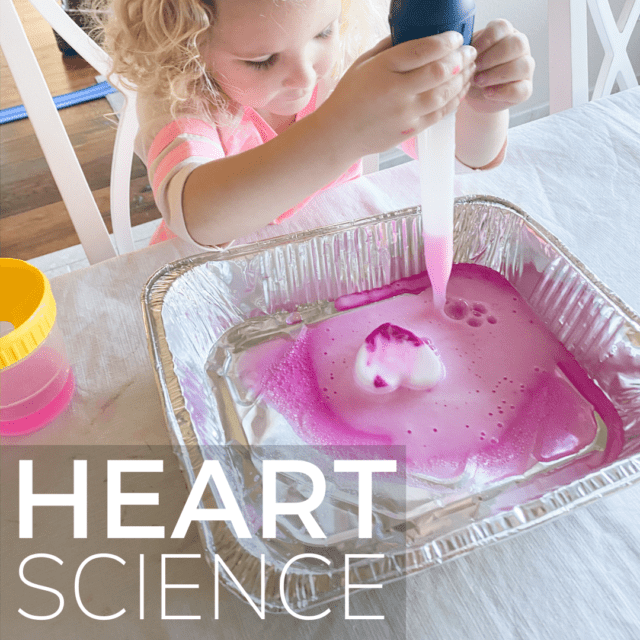
Need an easy Valentine's Day science activity? This baking soda heart science experiment is the coolest!
Baking soda is a staple of our activity cupboard and this Valentine's Day themed science activity is a winner every time we do it! Your kids will love it.
RELATED: Need more easy Valentines themed activities? These 30+ Valentines Day activities will keep you busy!
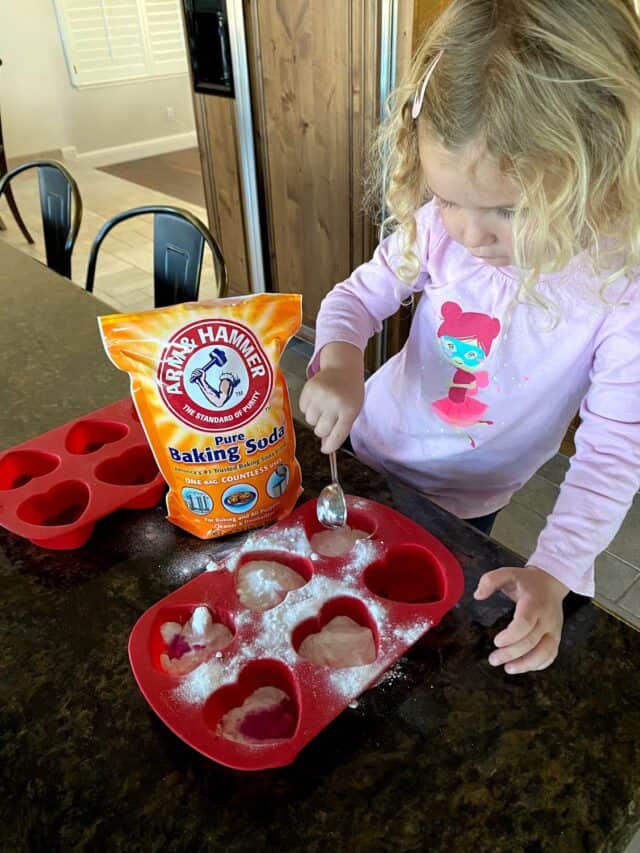
Materials for this easy Valentine's Day science activity:
These baking soda hearts can be made right now and they'll be ready in a few hours! I like to keep some in my freezer for days when we just need something a little more exciting to do.
Supplies:
- baking soda
- water
- heart mold (or muffin tins)
- food coloring
- freezer
- pipette (or turkey baster)
- vinegar
- cup
- Baking pan or craft tray
Instructions for Baking Soda Hearts:
- Mix 1-2 tablespoons of baking soda in each mold and then add water to fill the mold.
- Freeze overnight or until solid.
RELATED: Do you have a child that loves science? Try these 25+ Simple Science Activities for kids.
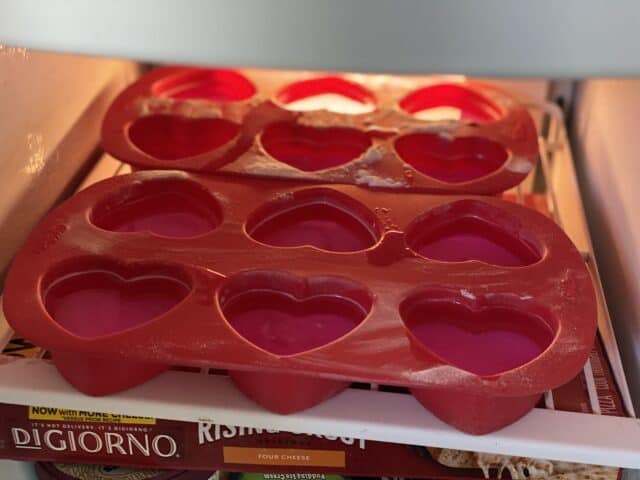
3. Pop the hearts out of the mold and you're ready to experiment!
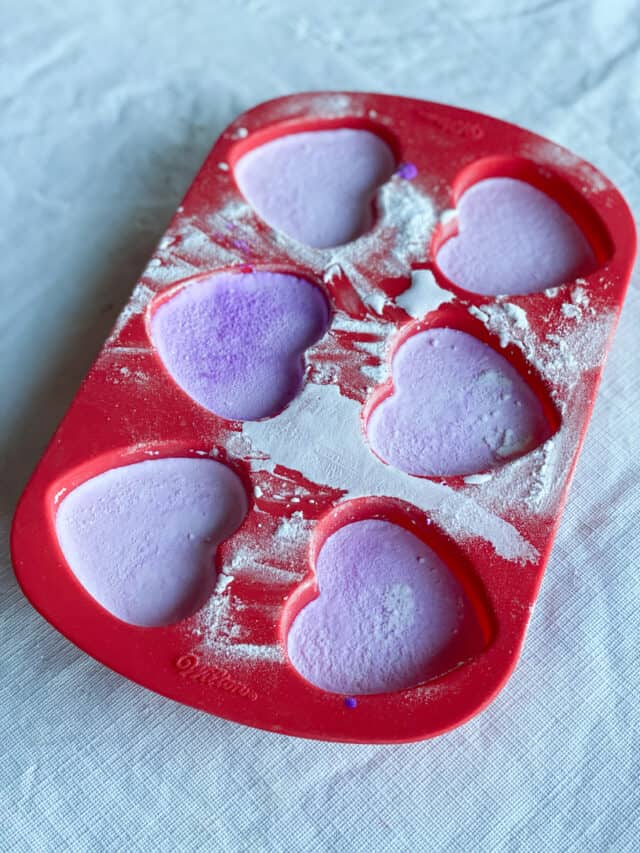
4. Put the hearts on a tray and squirt with colored vinegar. We like to use turkey basters for squirting, but you can also use pipettes or eye droppers!
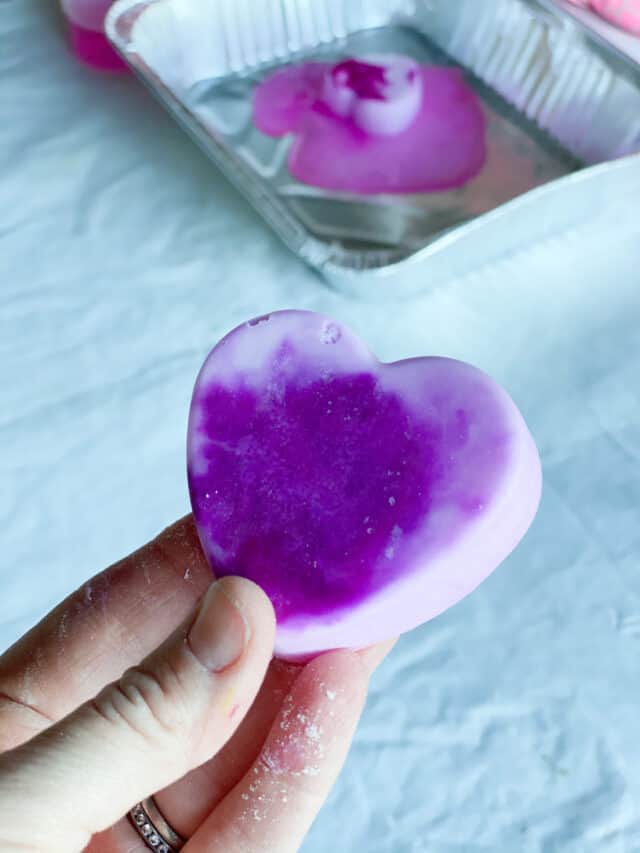
This Valentine's Day science activity has kids oohing and aahing as they listen to the fizzy sounds when the vinegar touches the icy baking soda!
Adding food coloring to the vinegar takes the experiement up a notch!
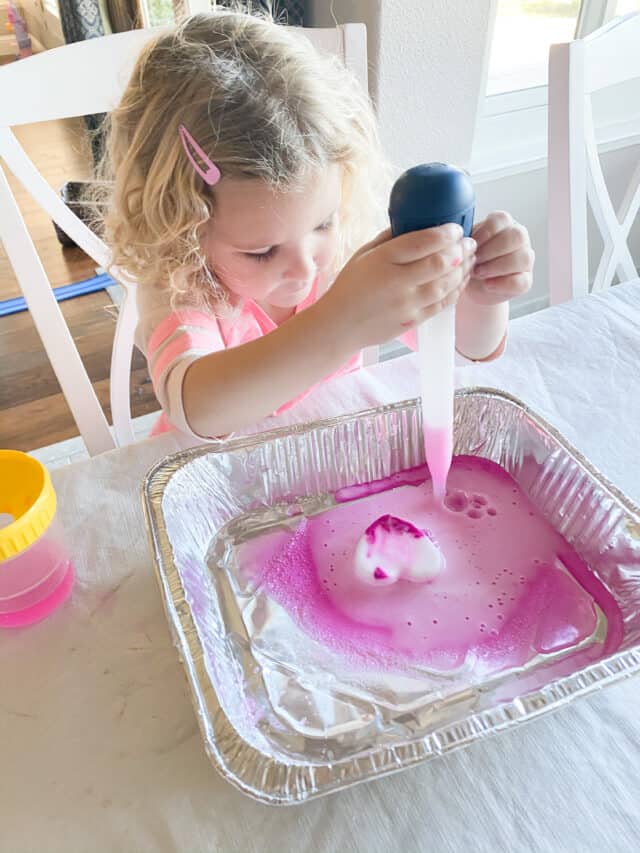
As kids squeeze vinegar and explore the fizzy baking soda hearts, they'll start to notice something happening-- The ice starts melting!
The ultimate goal of this activity is to melt the frozen heart!
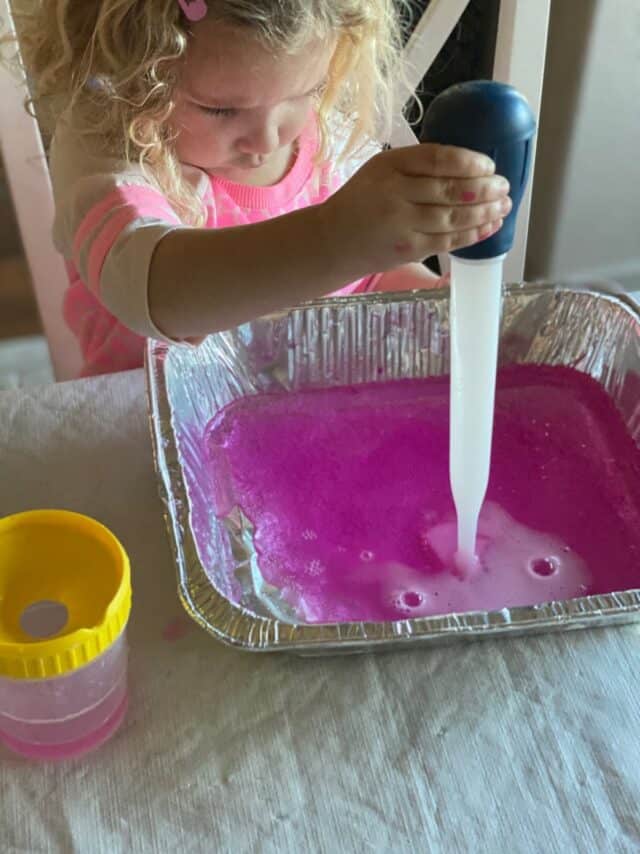
What are kids learning?
In this simple heart science activity kids learn about liquids and solids, problem solve how to make the ice melt, and explore with their senses as they listen to the fizz and watch the ice melt.
This activity is a favorite to repeat over and over again!
Need more easy Valentine's Day science activity ideas? Here are a few we love:
This Valentine's Day science collection from Little Bins for Little Hands is filled with fun!
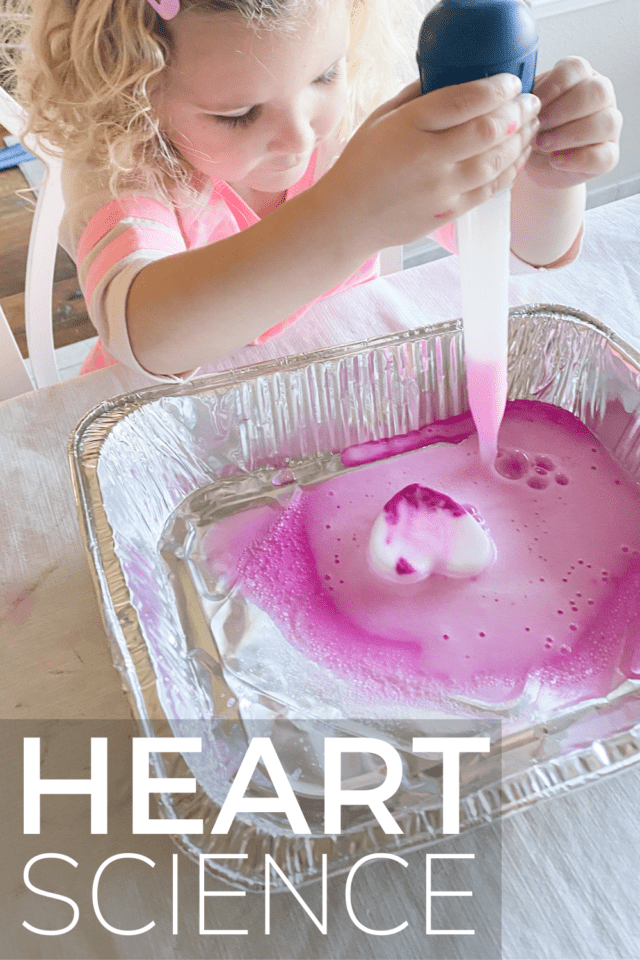
If you try this activity, tell us how it went in the comments!
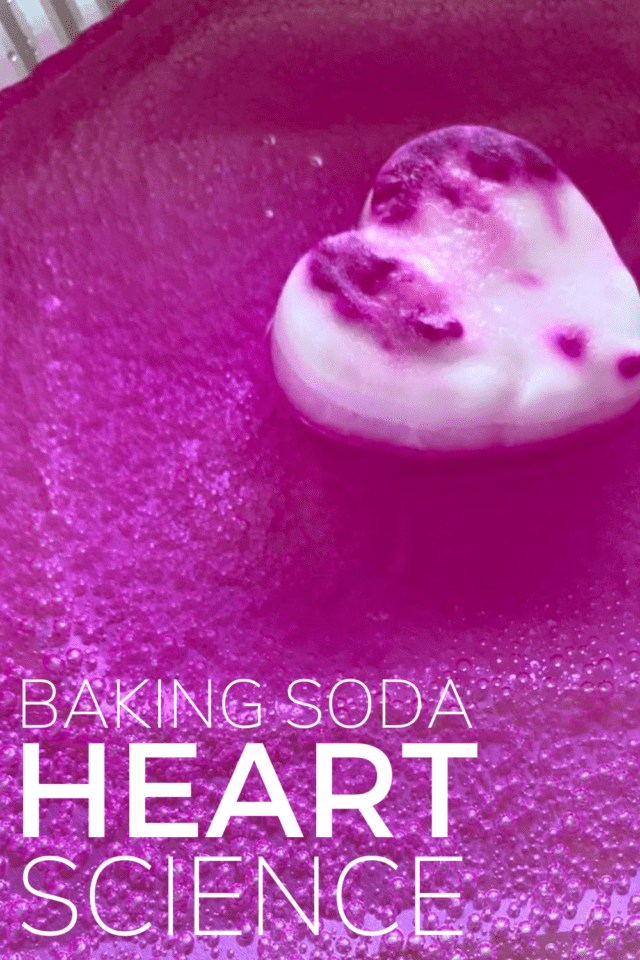


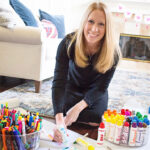
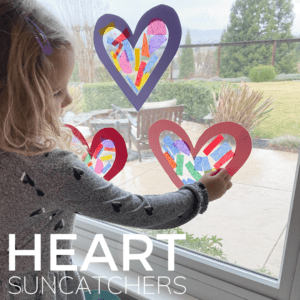
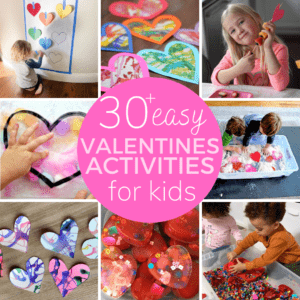
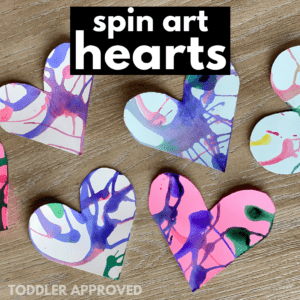
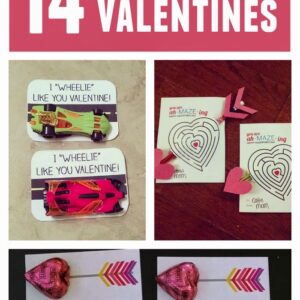
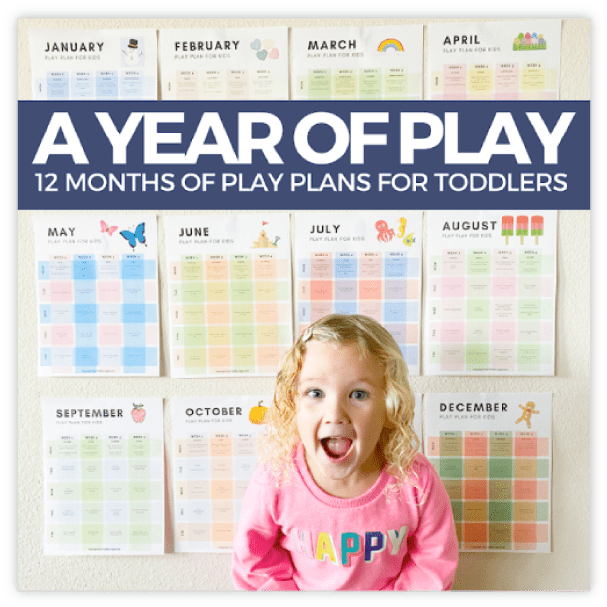

Is the recipe supposed to read:
Mix 1-2 tablespoons of “baking soda” in each mold and then add water to fill the mold.
Yes… heading to edit now 🙂 thanks for catching that!